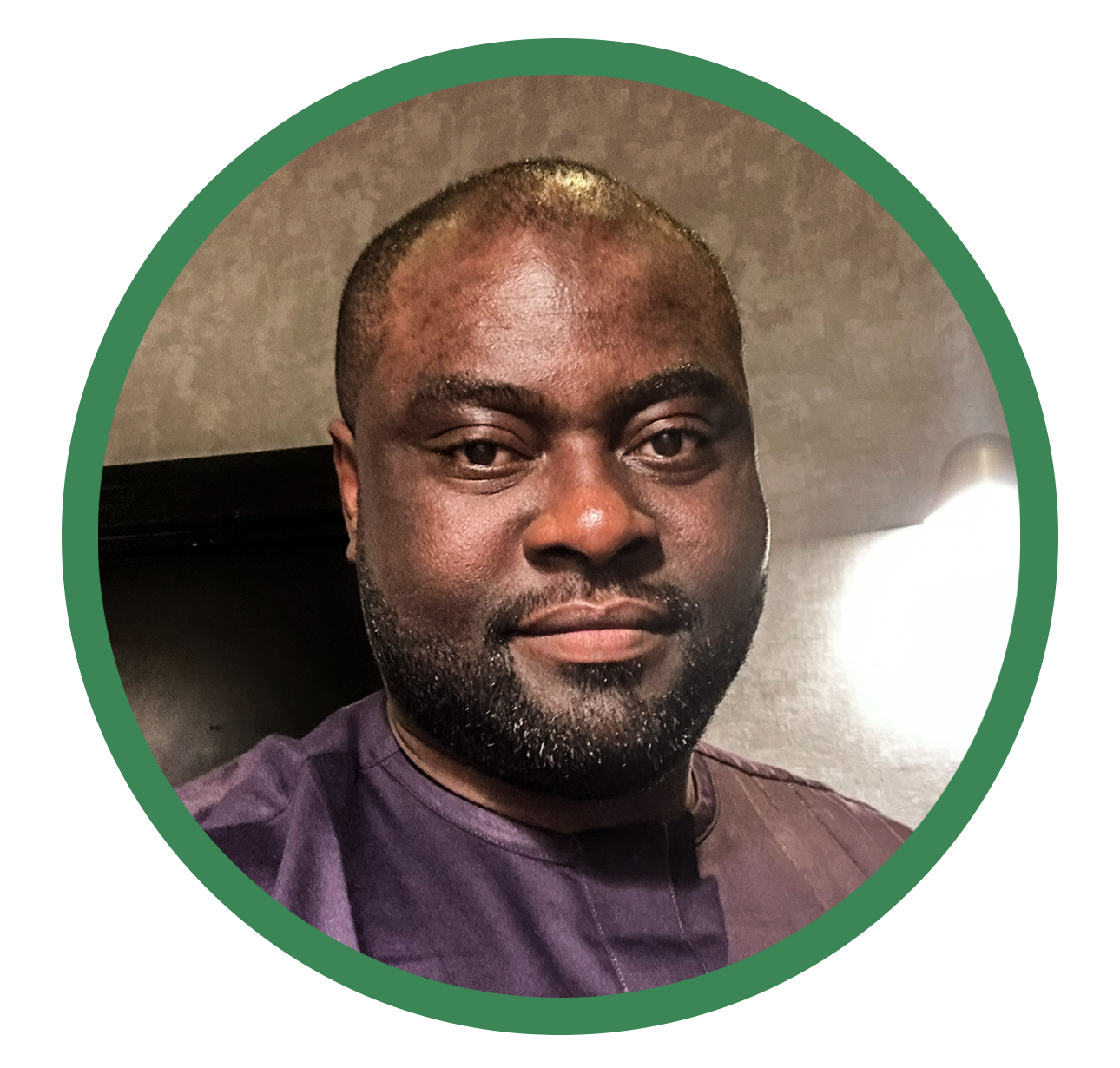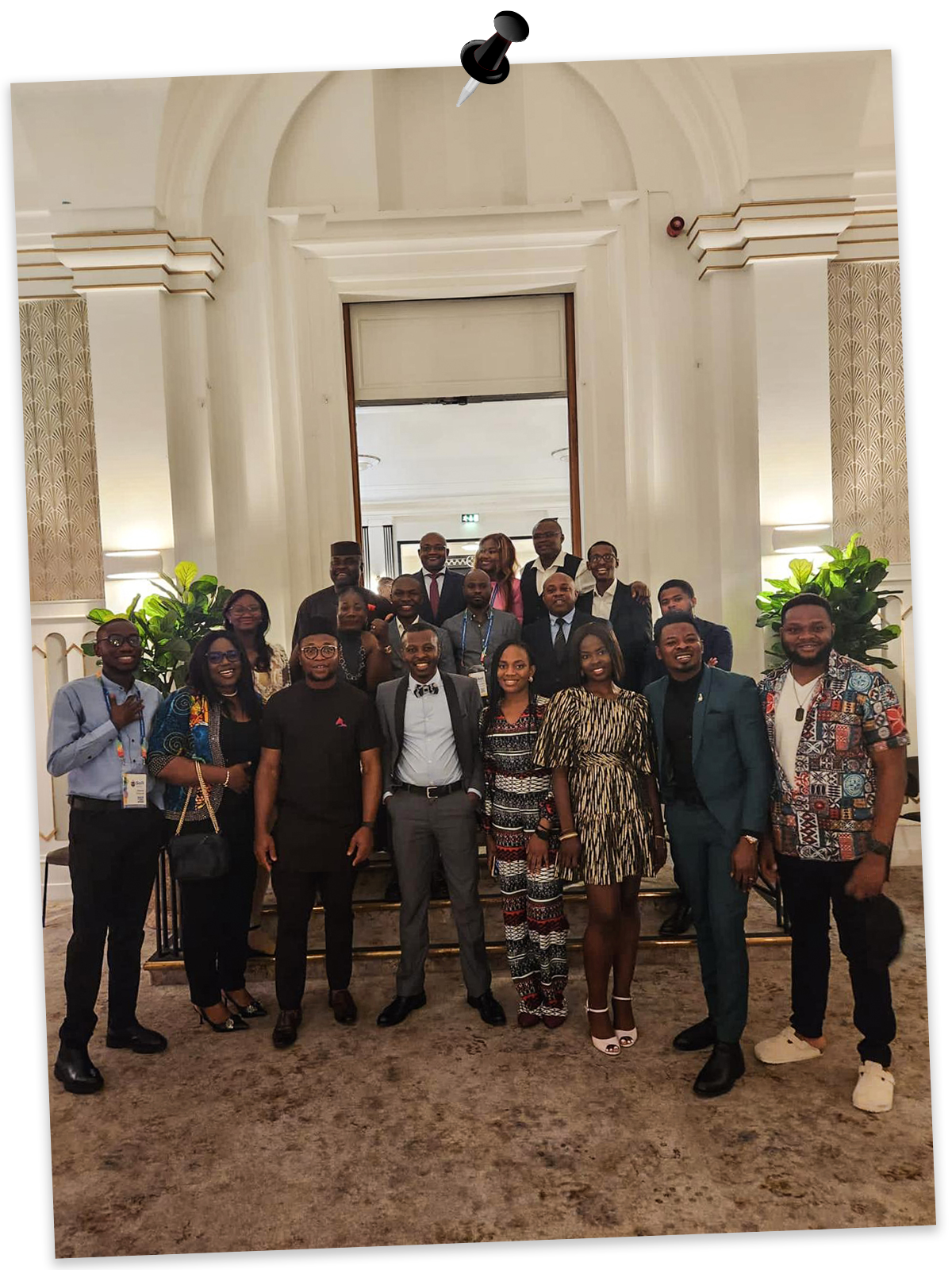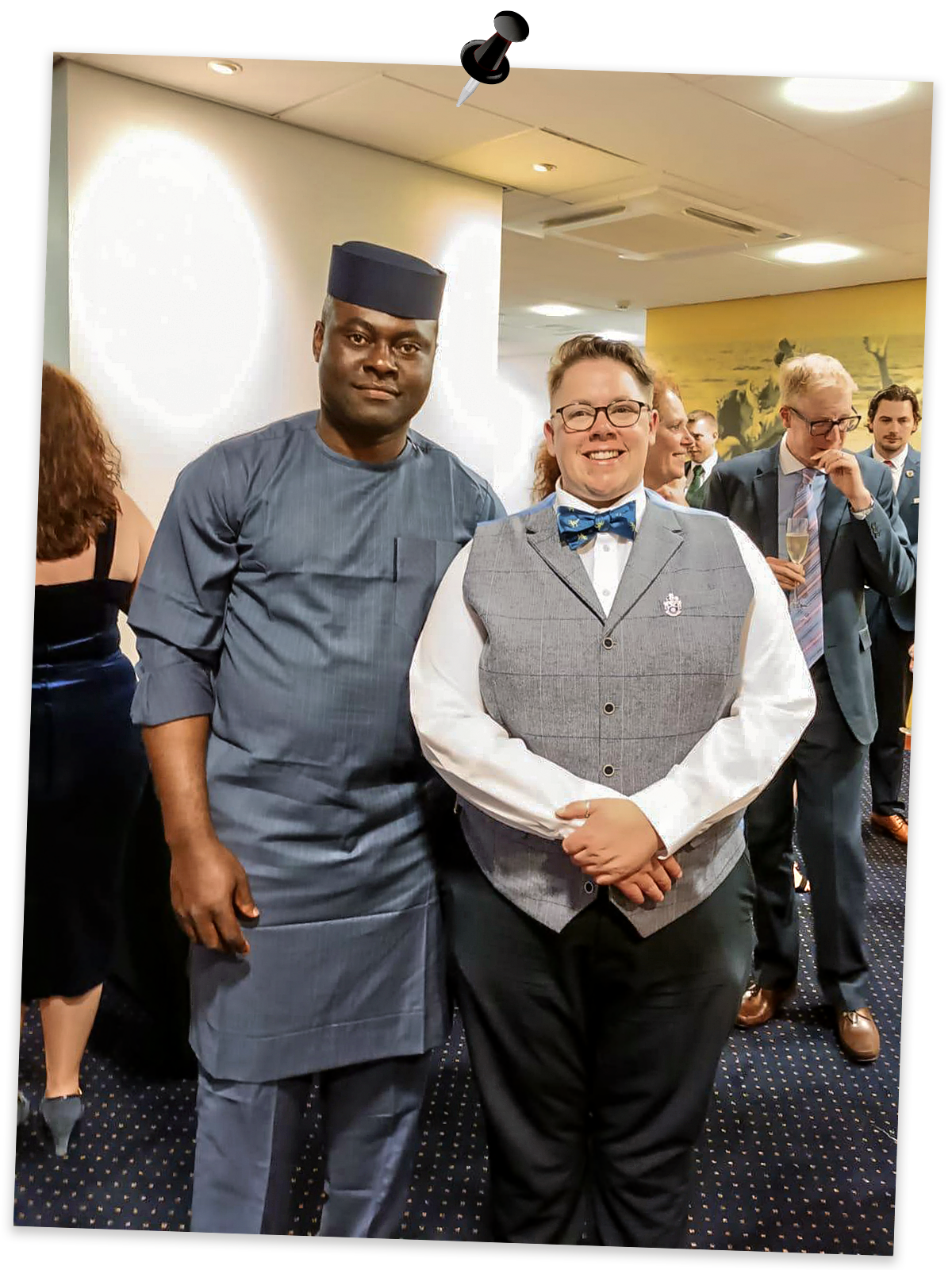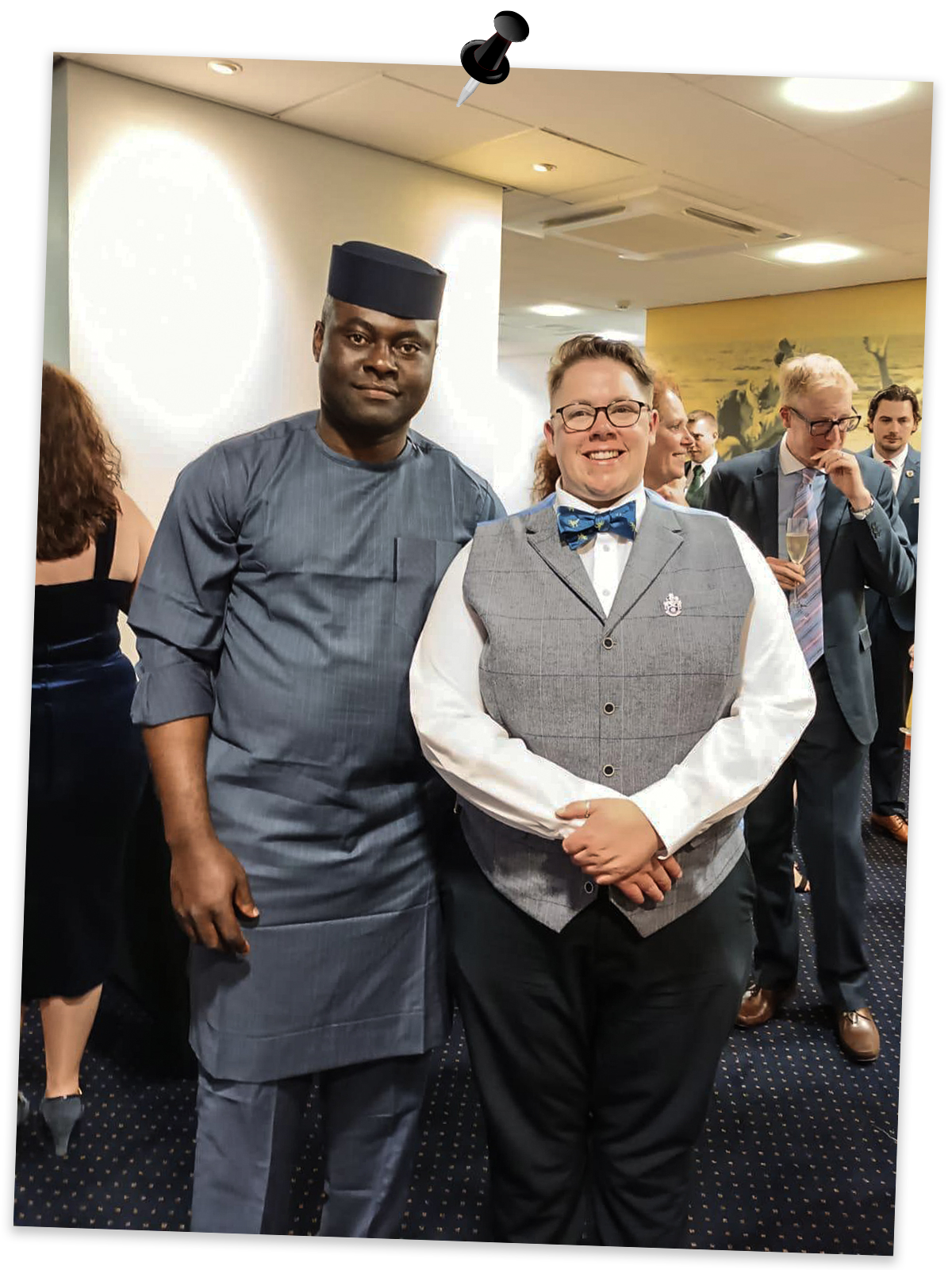A sense of community: Nigerian Radiographers in the Diaspora
International radiographers are a vital component of the NHS workforce, but they can often face challenges on moving to the UK. Chidi Ollawa explains how his professional organisation, NIRAD, is helping radiographers from Nigeria make the transition
By Will Phillips
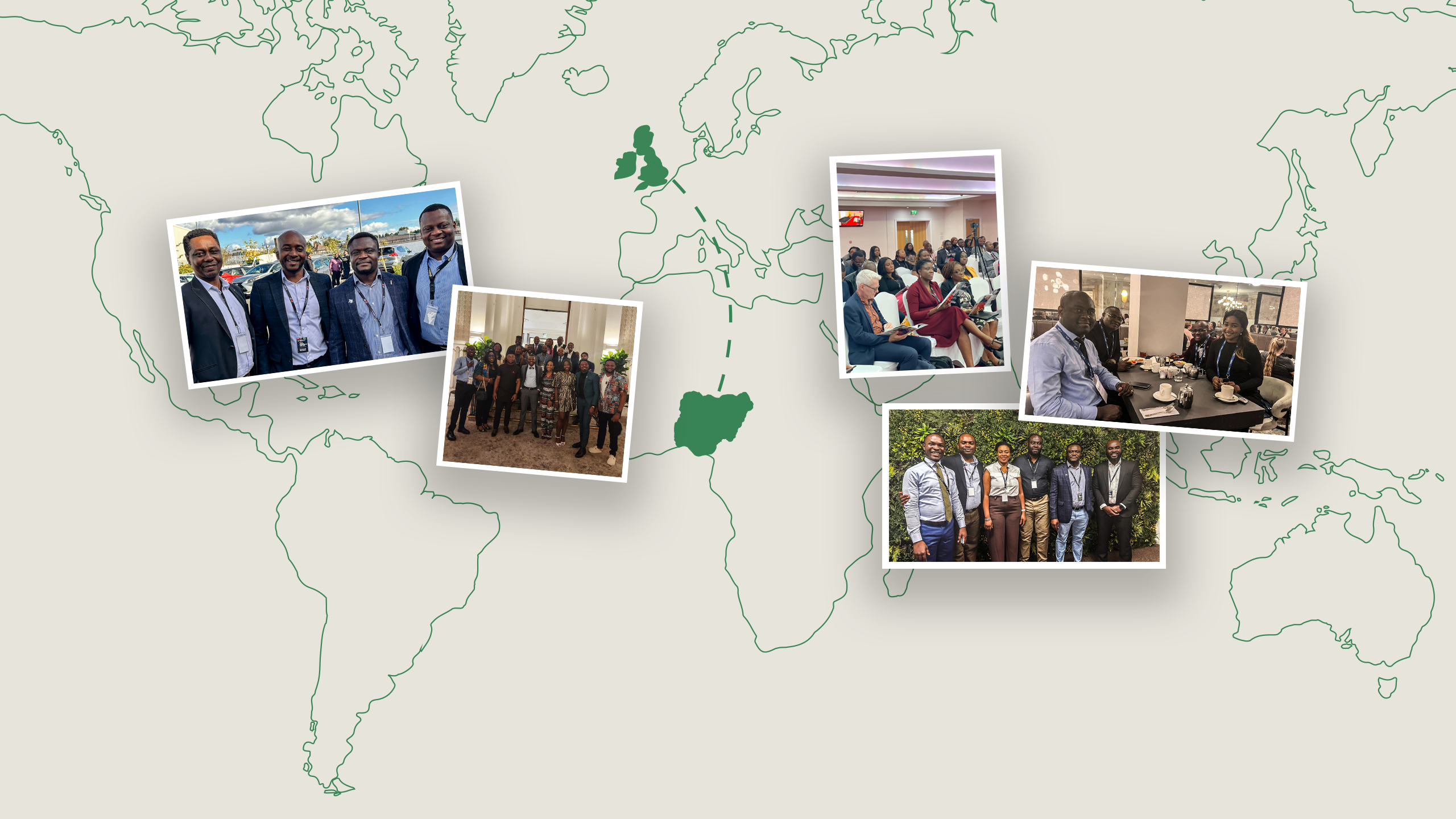
A sense of community: Nigerian Radiographers in the Diaspora
International radiographers are a vital component of the NHS workforce, but they can often face challenges on moving to the UK. Chidi Ollawa explains how his professional organisation, NIRAD, is helping radiographers from Nigeria make the transition
By Will Phillips

Difficulties in recruitment and retention in the allied healthcare professionals (AHP) workforce aren’t news to radiographers working in the NHS, and the SoR continues to work to remedy these challenges.
International recruitment is one area that has been highlighted as a potential partial solution to the 13.4 per cent average vacancy rate across radiography departments in the UK. Significant growth in the AHP workforce is a vital part of improving the conditions radiographers face every day, and a considered approach to ethical international recruitment is a key component of growing this workforce.
The SoR is here to support those looking to work in the UK as well as those seeking to recruit from international countries, but adjusting to life in a new country will always be a challenge – enter the Nigerian Radiographers in the Diaspora (NIRAD) professional and sociocultural organisation. Representing Nigerian-born and Nigerian-trained radiographers who are currently practising in the UK and the Republic of Ireland, NIRAD is committed to promoting and advancing the professional, educational, public and workplace interests of its members. NHS workers from Nigeria are the third largest ethnic group working in the NHS excluding British.
Synergy spoke to Chidi Ollawa, sonographer at North Cumbria Integrated Care NHS Foundation Trust and secretary of NIRAD, to find out more about the support the organisation offers to its members, and how it aims to increase collaboration with the SoR to improve international recruitment.
Chidi Ollawa
Chidi Ollawa
Community and guidance
Chidi is a sonographer, ultrasound preceptor, and SoR industrial relations representative at his Trust. He is also the Secretary of NIRAD.
The organisation operates in part as a charity, making donations to several universities in Nigeria. It also undertakes a monthly educational exercise for its members through its Academic Paper Review Group Meetings, thereby supporting its members who may be involved in post-graduate educational activities or independent research projects.
But one of the primary benefits of NIRAD, Chidi explains, is community. “Nigerian radiographers come together under the umbrella of NIRAD to foster a sense of community, because community here matters a whole lot to us,” he says.
“We’ve noticed the culture here is different to where we come from. Sometimes people may not understand how important that is, but it plays an essential part in the lives of a lot of people. We hope to serve as a cultural shock absorber. For example, we orient our members to avoid mannerisms, verbal expressions and gestures that would be a joke in Nigeria but probably considered offensive in the UK. We assist one another with that too.”
Moreover, Chidi says many in the NIRAD community may not really understand what the SoR is. Perhaps they haven’t had positive experiences with similar organisations back home, so they walk away.
That’s why NIRAD has created the NIRAD Special Interest Group (SIG) under the SoR, a platform for NIRAD members to get a sneak peek into what the Society is all about. It also provides members the opportunity to pool their resources, perform research and mentor new members.
Chidi continues: “No organisation is perfect, but we must find ways to synergise and collaborate. This is what NIRAD is doing.”
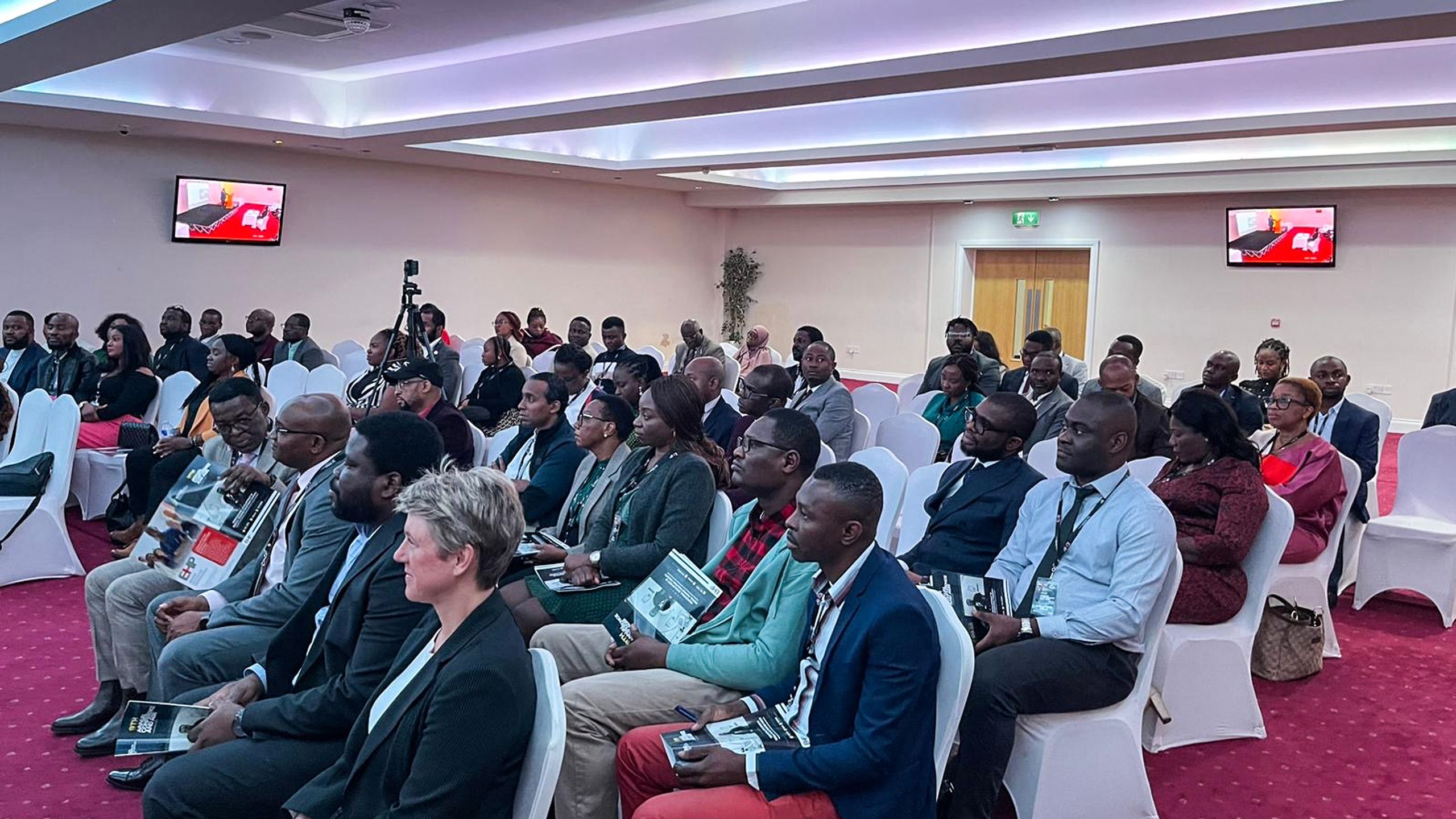
NIRAD members and one of the guest speakers (Professor Maryann Hardy) during the 2023 NIRAD conference in Leicester
NIRAD members and one of the guest speakers (Professor Maryann Hardy) during the 2023 NIRAD conference in Leicester
NIRAD members and one of the guest speakers (Professor Maryann Hardy) during the 2023 NIRAD conference in Leicester
Personal experience
Chidi himself suffered from this culture shock when he first moved to the UK, around four years ago. “There were a lot of things I experienced in the UK that were really shocking. The first thing was the weather. The sky was still bright much later than in Nigeria, as I arrived in the UK during the summer, and I didn’t know if that was normal or not,” he says.
Lacking context for a broad swathe of UK experiences can be quite disruptive to the experiences of those living here, he adds, if they aren’t used to them. Changes in daylight hours and the weather affected Chidi’s circadian rhythm – the body’s internal clock, which regulates waking and sleeping hours. “When you go from one place to another, something like this could happen to you. If we can have that forward knowledge, that really helps,” Chidi says.
But, he warns, where radiographers from Nigeria might really struggle to adjust is in the technical details of the transition to working in the NHS.
Ongoing work
One of the challenges that NIRAD aims to tackle is that many of its members, while doing fantastic research, leadership and other work, are doing so in isolation. “Individually, they might be stars. But if we bring them together, we can form a galaxy – a galaxy that would be really useful for the profession as a whole,” Chidi says.
By collaborating with the SoR, the two groups can share resources to do things together that neither could achieve while apart. An aspect of that is getting the word out – establishing a Nigerian radiographers’ special interest group in collaboration with the SoR will allow NIRAD to advertise what it can do for members far more broadly. For those conducting radiography research who are struggling with funding, for example, they should be aware that the College of Radiographers has funding grants or resources to enable them to complete their research study. By serving as a signpost to these resources, Chidi hopes that the NIRAD can prevent people from missing out on doing things they should be able to do.
The group also holds outreach events in Nigeria itself, encouraging professional peer review and knowledge transfer.
Sue Johnson, SoR professional officer for clinical imaging, says: “Developing our collaboration with NIRAD is a win-win situation for both organisations. We expect to learn from the NIRAD members how we can better support them in their UK practice and provide tailored support to them as a group. This should extend our impact and reduce the need for individual support unless required.
“Much as I might imagine how it feels to relocate to an entirely new country, culture and healthcare system, I haven’t got the lived experience nor the cultural background to recognise the specific personal and professional challenges faced by Nigerian-trained radiographers and their families. I am already learning from Chidi and the committee how they support their members, and I am confident that we can provide a complementary level of support and guidance to help new and established radiographers deliver their best to patients, gain appropriate support and find fulfilling job roles and careers in the UK.
“Along with the Professional Association of Indian Radiographers (PAIR), NIRAD represents a significant number of radiographers who have left their homeland to come to the UK and support our services. We thank them for helping to fill the gaps, for bringing their expertise to our patients and so willingly sharing their insight and knowledge with us at the SoR to help benefit all international recruits.”
Sue says the SoR and NIRAD are exploring possible opportunities to work together, with more information set to be published in due course.
Origins
NIRAD began with a group of Nigerian Radiographers in the UK and the Republic of Ireland who were determined to form a community and support one another. They exchanged emails, attended social events and continued to nurture their professional relationships as they adapted to their new surroundings.
In 2004, during a condolence visit to Mr Kevin Onah, one of the colleagues, Dr Ike Oze suggested that they form an association that would bring Nigerian radiographers together. The idea was well received, and over the next few years the colleagues continued to discuss the possibility of forming an association that would unite Nigerian radiographers in the UK and Ireland. “They noticed that they could actually come together – that we are a lot more in number than we think we are,” says Chidi. “We just added to that original group and, over time, we grew.”
Now, the NIRAD stands at a membership count of more than 300 radiographers, sonographers and radiography academics.
The first annual mini conference of Nigerian Radiographers in the UK and Republic of Ireland took place in September 2015 in Birmingham, and has been held every year since, with attendance reaching more than 150 people. And in 2024 a two-day conference took place in Nottingham on 30 September, where people from all parts of the UK and Northern Ireland were invited to share their projects, research or otherwise, network with fellow radiographers and share their professional experiences of living in the UK.
Nigerian radiographers and sonographers at the SoR Delegate Conference 2024 in Leeds
Nigerian radiographers and sonographers at the SoR Delegate Conference 2024 in Leeds
Chidi Ollawa with Claire Donaldson (former president of the SoR) at an SoR presidential inauguration ceremony in Glasgow
Chidi Ollawa with Claire Donaldson (former president of the SoR) at an SoR presidential inauguration ceremony in Glasgow
Ongoing work
One of the challenges that NIRAD aims to tackle is that many of its members, while doing fantastic research, leadership and other work, are doing so in isolation. “Individually, they might be stars. But if we bring them together, we can form a galaxy – a galaxy that would be really useful for the profession as a whole,” Chidi says.
By collaborating with the SoR, the two groups hope to share resources to do things together that neither could achieve while apart. An aspect of that is getting the word out – establishing a Nigerian radiographers’ special interest group in collaboration with the SoR will allow NIRAD to advertise what it can do for members far more broadly. For those conducting radiography research who are struggling with funding, for example, not being aware that the SoR has the ability to provide funding grants, or resources to guide them towards funding, can be a hindrance to a project. By serving as a signpost to these resources, Chidi hopes that the NIRAD can prevent people from missing out on doing things they should be able to do.
Nigerian radiographers and sonographers at the SoR Delegate Conference 2024 in Leeds
Nigerian radiographers and sonographers at the SoR Delegate Conference 2024 in Leeds
The group also holds outreach events in Nigeria itself, sharing knowledge of technological advancements in the UK that might not have made their way to the country yet. By preparing Nigerian radiographers with theoretical knowledge before equipment or technology becomes available, NIRAD aims to speed up practical adoption of these innovations.
Sue Johnson, SoR professional officer for clinical imaging, says: “Developing our collaboration with NIRAD is a win-win situation for both organisations. We expect to learn from the NIRAD members how we can better support them in their UK practice and provide tailored support to them as a group. This should extend our impact and reduce the need for individual support unless required.
“Much as I might imagine how it feels to relocate to an entirely new country, culture and healthcare system, I haven’t got the lived experience nor the cultural background to recognise the specific personal and professional challenges faced by Nigerian-trained radiographers and their families. I am already learning from Chidi and the committee how they support their members, and I am confident that we can provide a complementary level of support and guidance to help new and established radiographers deliver their best to patients, gain appropriate support and find fulfilling job roles and careers in the UK.
“Along with the Professional Association of Indian Radiographers (PAIR), NIRAD represents a significant number of radiographers who have left their homeland to come to the UK and support our services. We thank them for helping to fill the gaps, for bringing their expertise to our patients and so willingly sharing their insight and knowledge with us at the SoR to help benefit all international recruits.”
Sue says the SoR and NIRAD are exploring possible opportunities to work together, with more information set to be published in due course.
Origins
NIRAD began with a group of colleagues who shared a common heritage but had relocated to the UK and Ireland in search of new opportunities. Despite being in a new environment, the colleagues remained determined to stay in touch and support each other through thick and thin. They exchanged emails, attended social events and continued to nurture their professional relationships as they adapted to their new surroundings.
Chidi Ollawa with Claire Donaldson (former president of the SoR) at an SoR presidential inauguration ceremony in Glasgow
Chidi Ollawa with Claire Donaldson (former president of the SoR) at an SoR presidential inauguration ceremony in Glasgow
In 2004, during a condolence visit to Mr Kevin Onah, one of the colleagues, Dr Ike Oze suggested that they form an association that would bring everyone together. The idea was well received, and over the next few years the colleagues continued to discuss the possibility of forming an association that would unite Nigerian radiographers in the UK and Ireland. “They noticed that they could actually come together – that we are a lot more than we think we are,” says Chidi. “We just added to that original group and, over time, we grew.”
Now, the NIRAD stands at a membership count of more than 300 radiographers, sonographers and radiography academics.
The first annual mini conference of Nigerian Radiographers in the UK and Republic of Ireland took place in September 2015 in Birmingham, and has been held every year since, with attendance reaching more than 150 people. And in 2024 a three-day conference took place in Nottingham on 30 September, where people from all parts of the UK and Northern Ireland were invited to share their projects, research or otherwise, network with fellow radiographers and share their professional experiences.
Members of executive committee of NIRAD include Augustine Obi (President), Nsenam Obot (Vice President), Chidi Ollawa (Secretary), Chikaodi Ohanyere (Assistant Secretary), Nnaemeka Ugwu (Welfare Officer), Chiemeka Iroegbu (Publicity secretary), Joshua Okpara-Ijeru (Provost), Chinyere Eleto-Temple (Treasurer) and Jennifer Anugwo (Financial Secretary).
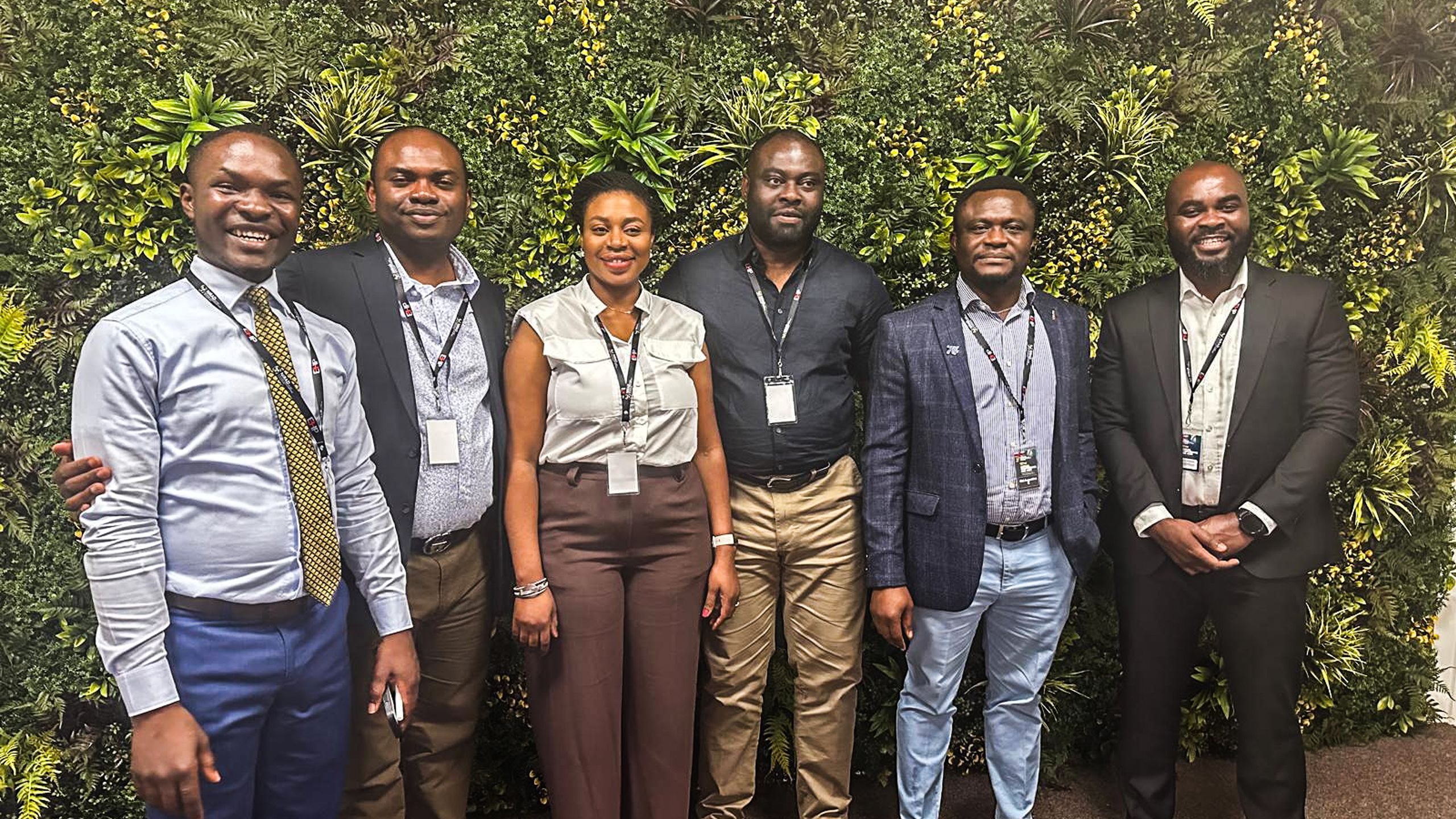
NIRAD Executive Council members at the 2024 NIRAD conference in Nottingham.
From left to right: Nnaemeka Ugwu (Welfare Officer), Joshua Okpara-ijeruh (Provost), Nsenam Obot (Vice President), Chidi Ollawa (Secretary), Augustine Obi (President), Chiemeka Sidney Iroegbu (Publicity Secretary).
NIRAD Executive Council members at the 2024 NIRAD conference in Nottingham. From left to right: Nnaemeka Ugwu, Joshua Okpara-ijeruh, Nsenam Obot (Vice President), Chidi Ollawa, Augustine Obi (President), Chiemeka Sidney Iroegbu
NIRAD Executive Council members at the 2024 NIRAD conference in Nottingham. From left to right: Nnaemeka Ugwu, Joshua Okpara-ijeruh, Nsenam Obot (Vice President), Chidi Ollawa, Augustine Obi (President), Chiemeka Sidney Iroegbu
Advice and support
For radiographers from Nigeria, or international radiographers more broadly who are interested in moving to the UK to continue their work, advised that opportunities will depend on which aspect of radiography they intend to practice on relocation to the UK. “You have to develop some experience and transferrable skills from your home country to cope with any potential differences in practice, because it’s so different,” he says. “If it’s ultrasound, it’s a whole lot different. The banding system, as well as doubling up on both managerial and clinical roles in a new environment with a different culture may be quite challenging – that brings a lot of responsibility on to your shoulders.
‘’My main advice for international radiographers relocating to the UK would be to look up what the SoR is about. Join the SoR, be amenable to professional guidance and counselling, seek help if you feel you are being unfairly treated, speak up, speak out, but be polite, make new friends, be respectful, read every document and document everything, ask questions, ask questions again, be culturally aware’’
Aside from technical advice, Chidi says the SoR can also help to provide the sense of community that he found to be so important. This helps with the cultural aspects, and the SoR can also advise on the differences between international radiography standards, practices and more.
Find out more about NIRAD
The Nigerian Radiographers in Diaspora (NIRAD) is a professional organisation that represents Nigerian-born and Nigerian-trained radiographers who are currently practising in the UK and the Republic of Ireland.
NIRAD is committed to promoting and advancing the professional, educational, public and workplace interests of its members.
The organisation is open to radiographers in active clinic imaging practice, academia, healthcare research, healthcare business, radiotherapy and oncology. NIRAD serves as a platform for radiographers to network, share knowledge and stay updated on the latest developments in the field.
Read more



